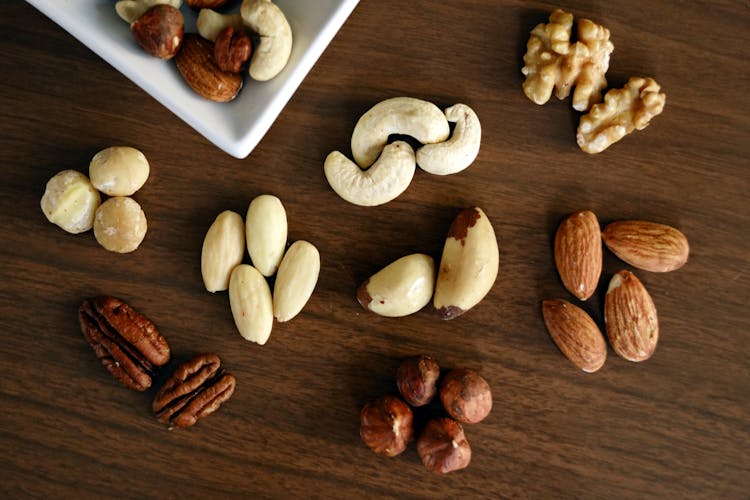Table of Contents
TLDR Summary
- 💧 Staying hydrated regulates body temperature and supports digestion.
- 💪 Water comprises about 60% of the body and aids in various functions.
- 🍉 Foods like watermelon and cucumbers help with hydration.
- 🩺 Symptoms of dehydration can include dizziness, dark urine, and fatigue.
- 🔋 Aim for at least 64 ounces of water per day, adjusting based on activity level.
Drinking plenty of water is crucial for maintaining body temperature, aiding digestion, and keeping skin healthy. Water makes up approximately 60% of the body and is essential for various bodily functions. It is not just about quenching thirst, but about providing the necessary hydration that our bodies require for optimal functionality.
Proper hydration helps regulate body temperature, supports brain function and mood, and keeps joints lubricated. In addition, it smooths digestion and aids in the elimination of waste, protecting organs and tissues from damage. The Water, Hydration and Health - PMC study stresses these essential roles, confirming that water is vital for sustaining overall health. When you maintain adequate hydration, you ensure that your body can perform at its best, allowing you to engage fully in daily activities.
Understanding Your Body's Hydration Requirements
The recommended daily intake of water varies by age, activity level, and health conditions. Generally, adults should aim for at least 64 ounces (2 liters) of water per day. More active individuals, particularly those engaging in strenuous activities or working outdoors, may need more, potentially reaching up to 1 ounce of fluid per pound of body weight. This means if you weigh 150 pounds, your intake can go up to 150 ounces per day. Keeping track of your hydration, particularly during the warmer months or high-intensity workouts, is important for optimal body function.
For more guidelines, you can refer to nutrition-related resources such as Eat Right for comprehensive nutrition information and tips tailored to your lifestyle.
Effective Hydration Techniques for Everyday Living
1. Drink Before Thirst: Hydrate before feeling thirsty, as thirst cues can be delayed and diminish with age. Make it a routine to drink water regularly throughout the day.
2. Frequent Intervals: Drink 1 cup (8 ounces) of water every 15-20 minutes when working in the heat. This can help maintain your hydration levels and keep your body performing efficiently.
3. Avoid Overhydration: Be cautious not to drink more than 48 ounces (1½ quarts) per hour to avoid diluting blood electrolytes. Balance is essential; too much of a good thing can be counterproductive.
4. Electrolyte Balance: During prolonged sweating, consider sports drinks with balanced electrolytes to help replace lost fluids and maintain body function. The right balance ensures peak performance and recovery.
5. Hydrating Foods: Include foods with high water content in your diet, such as watermelon, cucumbers, and strawberries. These not only provide hydration but also essential vitamins and minerals that promote overall health.
Recognizing Signs of Dehydration
The body has several signs to indicate dehydration. Here are a few to watch for:
- Feeling thirsty.
- Dark yellow and strong-smelling urine.
- Urinating little and less than four times a day.
- Feeling dizzy or lightheaded.
- Feeling tired.
- Dark circles and sunken eyes.
- Dry mouth and/or chapped lips.
Tracking your hydration level can be as simple as monitoring your urine color. Pale yellow typically indicates proper hydration, while darker shades can signal the need for more fluids. To learn more about the importance of staying hydrated, it may be beneficial to consult resources like Choose My Plate, which provides dietary guidelines that include hydration.
Additional Tips for Hydration Success
Eating regular meals can help replace lost salt and maintain hydration. Additionally, avoiding sugary drinks and caffeine can lead to better hydration as these often have diuretic effects. When the body loses more fluid through these beverages, it can lead to feelings of dehydration.
Using hydrating foods and beverages like juices and popsicles in moderation can also replace some of the fluid lost throughout the day. Consider investing in a high-quality blender, like the Ninja BN701 Professional Plus Blender, which can help you create smoothies that are not only delicious but also packed with hydrating fruits and vegetables.
Nutritional Balance and Hydration
Achieving optimal hydration is just as critical as maintaining a balanced diet. Healthy eating tips often recommend an assortment of fruits and vegetables that inherently contain water. Such choices not only hydrate but also nourish the body. Aim for meals that incorporate foods with high water content as a staple in your diet. Additionally, resources from Nutrition.gov provide valuable insights into how nutrition ties into hydration and overall well-being.
Staying Hydrated for Healthy Skin
Keeping your skin healthy also relates directly to your hydration habits. Water helps to maintain skin elasticity and reduces dryness. For many, the visible signs of dehydration include dull skin, fine lines, and flakiness. Staying hydrated can ensure that the skin retains its moisture, resulting in a vibrant, healthy appearance. Consulting credible sources, like 7 Science-Based Health Benefits of Drinking Enough Water from Healthline, can further clarify the benefits of hydration.
In conclusion, staying hydrated is essential for maintaining overall health and well-being. By following these tips and strategies, individuals can ensure they are drinking enough water to regulate body temperature, aid digestion, and keep skin healthy. For additional information about the benefits of hydration, explore literature from BetterHealth.
Key Takeaways
- 💧 Hydration regulates body temperature and supports vital bodily functions.
- 👀 Monitor your water intake and watch for signs of dehydration.
- 🥗 Incorporate hydrating foods into your daily meals for enhanced hydration.
- 🏋️♀️ Adjust your fluid intake based on activity level and weather conditions.
- 🙌 Keep your skin healthy and hydrated for a radiant glow.

Uncover detailed factors here
Navigation
Latest Posts
Your One-Stop Shop for Garage Doors
Revitalize Your Diet: Whole Foods for Effective Weight Management
Elevate Your Wellness: Whole Foods for a Healthier You